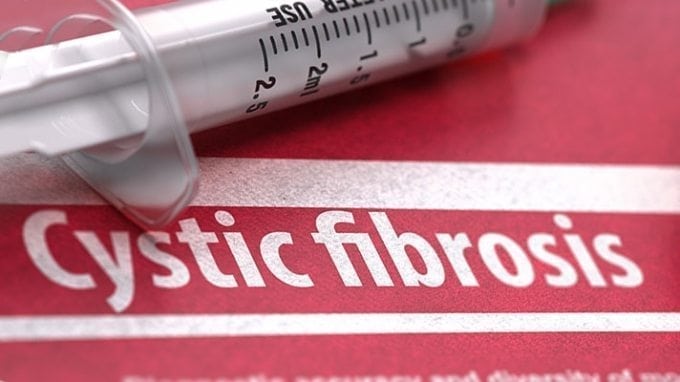Cystic Fibrosis: What is it?
Cystic fibrosis, or CF, is an inherited disorder caused by mutations in the gene for the CF transmembrane conductance regulator protein or CFTR. It is a disease of the mucus glands and sweat glands. Testing the individual’s sweat, blood and genetic testing is used to confirm the diagnosis. Education and knowledge about cystic fibrosis enable people to make good decisions about their diagnosis and treatment.
What are the Symptoms of CF?

• Excess mucus from the lungs and trouble breathing.
• Frequent sinus infections.
• Frequent lung infections.
• Poor growth.
• Fat in the stool.
• Clubbed fingers and toes.
• Male infertility.
• The child’s sweat may be excessively salty.
• CF may also affect a person’s digestion.
Types of Treatments for CF
While CF has no cure, treatments exist that aid its symptoms. The goals of CF treatment are:
• Preventing infections, especially in the lungs.
• Removing or loosening lung mucus.
• Nutritional education to keep the patient as healthy as possible.
• Keeping the individual hydrated.
• Counselors.
• Physical therapy to increase strength, especially in the lungs.
• Medications and therapies to keep the lungs functioning optimally.
• Anti-inflammatories.
How Can You Find Out Whether or Not You Have the CF Gene?
If you have had a relative with CF, it is best to seek testing to determine whether you have the genetics for carrying CF on to their children. These tests are safe to take during pregnancy and are relatively painless. One test is a blood test, while the other uses a swab of the inside of the mouth to take a look at an individual’s genetic makeup. The swab or blood test is evaluated by a lab and test results shared in a doctor’s office. A person can have the testing for CF done before becoming pregnant or in the early stages of pregnancy.
You may also have testing done on the fetus during the pregnancy. Two types of testing done are:
• Chorionic villus sampling, which tests for genetic conditions and birth defects at 12 to 14 weeks pregnant.
• Amniocentesis that tests amniotic fluid for genetic problems and birth defects. This test can be done at 14 to 17 weeks pregnant.
Does CF Impact Fertility Levels?
Although cystic fibrosis does affect the reproductive systems, most women have no difficulties when it comes to getting pregnant. When it comes to men’s fertility health and CF, 97 to 98 percent of men with cystic fibrosis are diagnosed with infertility, however they can still have biological children with the help of assisted reproductive technology (ART).
Can You Pass CF to Your Children?

If both parents have the CF gene, consult a genetic counselor for more facts about passing CF on to your kids.
Does CF Cause Problems with Pregnancies?
Women with CF may have difficulty becoming pregnant. On the other hand, many women with CF do become pregnant and have a successful, healthy baby. In some cases, pregnant women with CF have a higher chance of developing gestational diabetes, which can damage organs in the body of the pregnant woman or the growing baby. Women are routinely tested for gestational diabetes during their pregnancy, but it is best to let the attending OBGYN know that CF is a factor in the pregnancy.
Men with CF or carriers may be infertile. Men with CF frequently have a blocked vas deferens or no vas deferens at all. If the sperm can’t go through the vas deferens, it can’t be ejaculated. Therefore, the sperm can’t reach a female ovum to cause a pregnancy. However, the male’s body does still make sperm. If a male with CF wants to impregnate his partner, he must have medical assistance. Some types of artificial insemination may be used to help a man with CF become a father.




